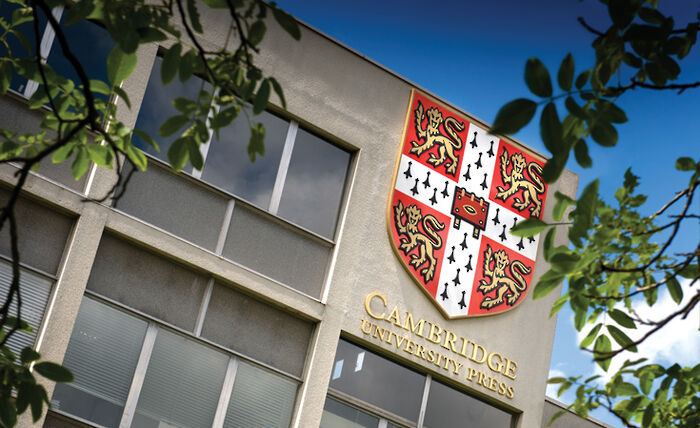Cambridge University Press should never bow down to China’s censorship again
The CUP has fallen foul of suppressing the truth to appease the Chinese regime, but should learn from its mistakes and never do so again

This year marks forty since the end of what is known as the ‘National Emergency’ in India, a two-year long suspension of democratic government on flimsy pretences. When the Emergency was declared in 1975, the Times of India carried the following obituary: “D.E.M O’Cracy, beloved husband of T Ruth, loving father of L.I.Bertie, brother of Faith, Hope and Justice, expired on June 26.”
In deleting articles on sensitive topics for the Chinese government – such as Tibet, Hong Kong and Xinjiang among others – from China Quarterly, the scholarly journal on contemporary China, the Cambridge University Press (CUP) has become complicit in the attempted murder of that family. The CUP has tried to white the sepulchre by now reinstating the articles, but it should alarm us all that their instinct was to bow down before the great firewall, not just to submit themselves to the censor’s scalpel, but do so with a masochistic whimper, claiming that they were ‘ensuring access’ to other material.
“Their instinct was to bow down before the great firewall”
This matters also because the incident is merely the latest in a series of attempts by the People’s Republic of China (PRC) to strangle academic freedom. The single-party state is in the grip of what James Fallows of The Atlantic calls ‘a great leap backwards.’ At home, professors who voice support for reform are liable to being dismissed, and the guarantees of ‘one country, two systems’ given to Hong Kong during the handover twenty years ago have been bulldozed.
Abroad, the Chinese Communist Party has begun exporting its ideologies through, among others, its Confucius Institutes. These schools disseminate the party line to western university students under the guise of ‘cultural exchange’ and exert pressure on academic institutions to show deference to the PRC’s interests. Just this week, a Professor at the University of Newcastle in Australia was forced to apologise for referring to Taiwan as an ‘independent country’ – which, in all but name, it is – because it allegedly made Chinese students feel ‘uncomfortable’. This simply adds to a litany of incidents of academic self-censorship. Through these institutes, apparatchiks of the regime have attempted to make discussion of the three T’s – Tibet, Tiananmen, and Taiwan – taboo in the heart of the world’s most liberal societies.
“Cambridge University Press should not have given an inch to China”
In this context, Cambridge University Press should not have given an inch to China. We can only hope that the principled stand it rediscovered will continue. As Professor James Millward pointed out in his open letter – a central part of the pressure campaign to which the CUP relented – many have declined to bend to Chinese pressure and thrived. Google, the New York Times and the Economist all chose to leave China entirely rather than allow curtailed versions of their product to become tools of control for the party machine. None of the three are poorer for it.
In 1959, the American publisher Barney Rosset of Grove Press forced the Federal Government to prosecute him for importing Lady Chatterley’s Lover, a banned book. He fought the case up to the Court of Appeals, and had the ban overturned – a decision which fired the starting pistol for a streak of cases in which the Supreme Court reclaimed for citizens their natural rights to read, view, and say what they wanted.
All publishers and academics should measure themselves against this ‘Rosset standard’ for upholding academic freedom. Abandoning it may be tempting, and self-censorship may be good for business today, but it would be foolish to cheer: it would be like a mediaeval apothecary cheering for the bubonic plague. A short-term increase in business, yes, but hardly a strategy for lasting success.
The whole episode stings particularly harshly those of us who live in ‘backsliding democracies’ like India – nations which are far from being ‘Democratic People’s Republics,’ but where the state is attempting to slip the moorings of their checks and balances.
My parents tell me stories of how, during the Emergency, millions of Indians tuned in to the BBC’s Hindi radio service as one of the few outlets broadcasting reports untainted by the stench of state censorship. I shudder to imagine a future where when we tune in, we are met only with the sound of an oppressive silence
 News / Colleges charge different rents for the same Castle Street accommodation2 March 2026
News / Colleges charge different rents for the same Castle Street accommodation2 March 2026 News / King’s hosts open iftar for Ramadan3 March 2026
News / King’s hosts open iftar for Ramadan3 March 2026 Theatre / Lunatics and leisure centres 4 March 2026
Theatre / Lunatics and leisure centres 4 March 2026 News / Angela Merkel among Cambridge honorary degree nominees27 February 2026
News / Angela Merkel among Cambridge honorary degree nominees27 February 2026 News / News in Brief: waterworks, wine woes, and workplace wins 1 March 2026
News / News in Brief: waterworks, wine woes, and workplace wins 1 March 2026








